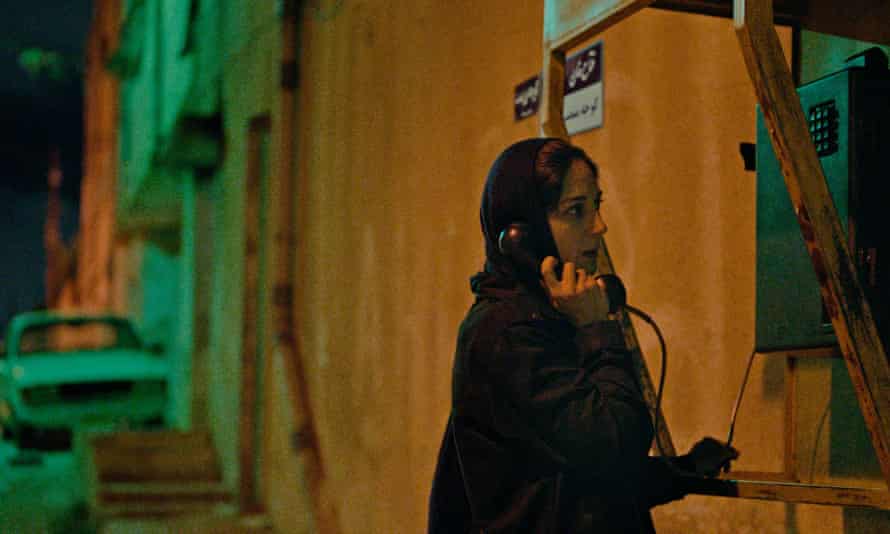Holy Spider is a serial killer procedural which takes the procedure further than usual, despite its deployment of some pretty familiar tropes. It goes beyond the denouement and the arrest, extending the murderer’s conceited theater of cruelty to the police cell, the law courts and the media arena.
This is a fictionalized true-crime drama-thriller based on Iranian construction worker Saeed Hanaei, nicknamed “Spider Killer” in the press, who in 2001 was arrested for the murder of 16 sex workers in the northeastern city of Mashad, and became a folk hero to the religious right for claiming to be on a holy mission to cleanse the city of prostitution. (Hanaei has already been the subject of a documentary and another feature film.)
Sitting down to this drama, I wondered if director and co-writer Ali Abbasi, known for his 2018 body-horror satire Border, might follow the example of historian Hallie Rubenhold whose book on Jack the Ripper focused on the identities of the women victims and revealed them to be far more complex human beings that the male ripperology industry had ever allowed.
Well, not exactly, no. Despite some intimate vignettes showing the women’s grim existences and a genuinely moving moment when the father of one bursts into tears at the thought of his daughter’s wasted life, this sticks to a rather Hollywoodised, but certainly very effective killer-centric script. We see Saeed himself, played by Medhi Basjstani, an angry and conflicted building-site worker who in one scene is shown taking a fearsome sledgehammer to a wall. He is a veteran of the Iran-Iraq war of the 1980s and despises himself for not having been more of a hero, or a martyr.
But the woman who takes center stage is a fictional investigative journalist from Tehran, Rahimi (Tsar Emir-Ebrahimi) who shows up in Mashad wanting to crack this long-running case, and of course it is her view, and the movie’s view, that the police have been notably lackadaisical in catching the killer because the cops and the judiciary and the culprit himself are all part of the same patriarchal mindset.
Rahimi befriends a disheveled, well-meaning local reporter (Majd Eid) — evidently another invention, or at any rate composite — whom the Spider has been calling from a payphone to make sure his exploits are fully publicized. Together this odd couple talk to the sneering, sexist police chief Rostami (Sina Parvaneh) who wilfully misreads rumors about the #MeToo situation Rahimi had been in with her editor back in Tehran, believing instead that she is a woman of loose morals that he can sexually harassed with impunity. Eventually, the question arises: how on earth is Rahimi going to confront this psychotic assailant? By being the bait of course — Rahimi is going to have to pretend to be a sex worker in the Schraderesque streets that Spider Killer is known to frequent; she will go back to his flat de ella with him, while her reporter pal follows in secret.

It’s a time-honored and slightly preposterous narrative device. But what happens if for some reason Rahimi’s journalist ally can’t help her and she is left alone with a big, aggressive guy who is practiced in violence? Rahimi has no training in martial arts and all she appears to have on her de ella is a knife.
There is a definite implausibility factor here, but the movie’s final act, showing Saeed’s eerie self-possession and unrepentant defiance in the dock, is nicely managed, right up to the black cap moment itself — although here again, Abbasi has exercised a bit of artistic licence. Holy Spider is certainly a lot brasher in its treatment of sex work in the theocratic state of Iran than a movie like, say, Jafar Panahi’s The Circle (2000). Abbasi undoubtedly conveys the brutal attitudes which create victimhood.
www.theguardian.com
George is Digismak’s reported cum editor with 13 years of experience in Journalism